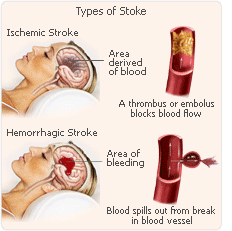
Hormonal replacement therapy (HRT) has been promoted by medical professionals for years and yet little research has been done into the risks of stroke as a result of the foreign hormones introduced into the body with this treatment. As the extra hormones help to balance estrogen and progesterone levels during menopause and calm related symptoms, they may also be affecting other parts of the body and only recent studies have begun to address this fact.
This research, undertaken by staff at the Group Health Cooperative (GHC) was carried out in the greater Seattle area and included information about 939 women all of whom suffered with strokes from July 1989 to December 1998. These women were also all post menopausal. The research included the sufferers of 726 ischemic strokes and 213 hemorrhagic strokes. These patients had their medical history reviewed and there use of replacement hormones assessed through computerized pharmacy data in order to establish any links between the onset of menopausal symptoms, the use of alternative hormones as a treatment and the strokes they later suffered from.
The findings of the survey showed that stroke risk was not increased in women taking estrogen with progestin as a type of hormone replacement therapy (HRT). There was also no difference between these women and those that had never used replacement hormones.

However the study did highlight the increased risk of stroke in the first 6 months of HRT use for patients suffering from menopausal symptoms. Menopausal symptoms, such as hot flashes and sleep disturbances, are usually caused by wavering estrogen levels which can be treated by replacement hormones. However this research has also shown increased levels of estrogen during HRT treatment can raise the risk of stroke by a higher level than those patients who were only treated with lower levels of estrogen hormones.
In conclusion this research has demonstrated the further ambiguity of the engineered hormones in HRT as a treatment for menopausal symptoms. Although the results show that the replacement hormones involved only increase the risk of stroke in the first 6 months of treatment this is still a risk for women searching for a safe treatment for menopause. Researchers have also highlighted that higher levels of the hormones can cause a greater risk so it may be important for HRT usage to be minimized in the future if no superior treatment for menopause hormones imbalance can be identified.